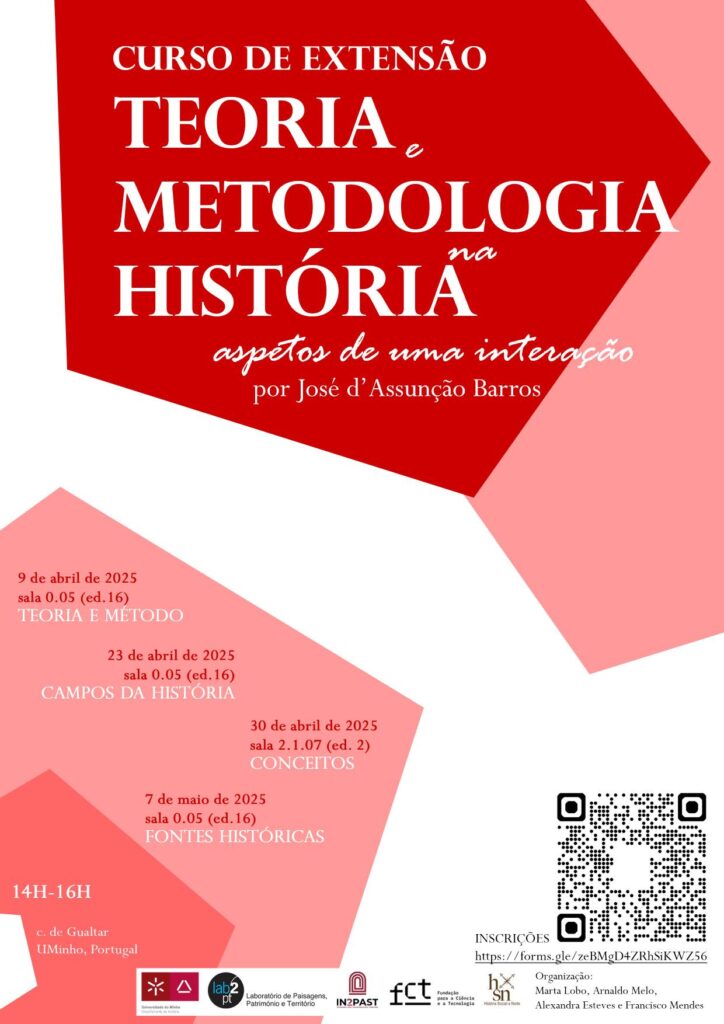News
Extension Course "Theory and Methodology in History: aspects of an interaction" took place between April 9th and May 7th, 2025
wednesdays | 2pm-4pm | Gualtar campus, UM
Published on
The Extension Course “Theory and Methodology in History: aspects of an interaction”, organized by Lab2PT/IN2PAST professors and researchers Marta Lobo, Arnaldo Melo, Alexandra Esteves and Francisco Mendes (History Department of the University of Minho), began on April 9th.
On this day, at 2 pm, the inaugural session of the Extension Course “Theory and Methodology in History: aspects of an interaction” took place, taught by José d’ Assunção Barros.
In this first class, under the theme “Theory and Method”, questions related to the contrast and interactions between theory and methodology were developed, the different meanings applied to the concept of theory, some hypotheses about the construction of historical interpretations and some myths and impediments related to theoretical construction in the social sciences were also discussed.
The session led by professor and researcher José d’ Assunção Barros included active intervention from registered participants (undergraduate, master’s and doctoral students and professionals linked to Education), who discussed the topics under analysis, in a space for debate and knowledge acquisition.
On April 23rd, the second session took place, focusing on the theme of Historical Fields, and how they are organized in terms of their dimensions, approaches and domains. Different fields of History were explored, namely Micro-History, Serial History, Oral History or History of Mentalities.
On April 30, the third session explored the use of Concepts in the Theory of History. Analyzed under different dimensions, they were presented in terms of their functions, origins and characteristics, what distinguishes them from common words, the risk of anachronism in their use, and how they are understood in terms of their Understanding and Extension.
The last session took place on May 7th, dedicated to the theme Historical Sources. What they are, how they are organized (taxonomy), their variety and how they are intrinsically related to methodologies in historical research were the main points addressed, with the Professor José d’ Assunção Barros giving several practical examples to illustrate how the different sources are distributed, or included, in various categories (material, content, immaterial, virtual,…) and how they are all produced in a certain Place, having a certain Form/Content and aiming at a certain Reception.

More information about the course HERE.